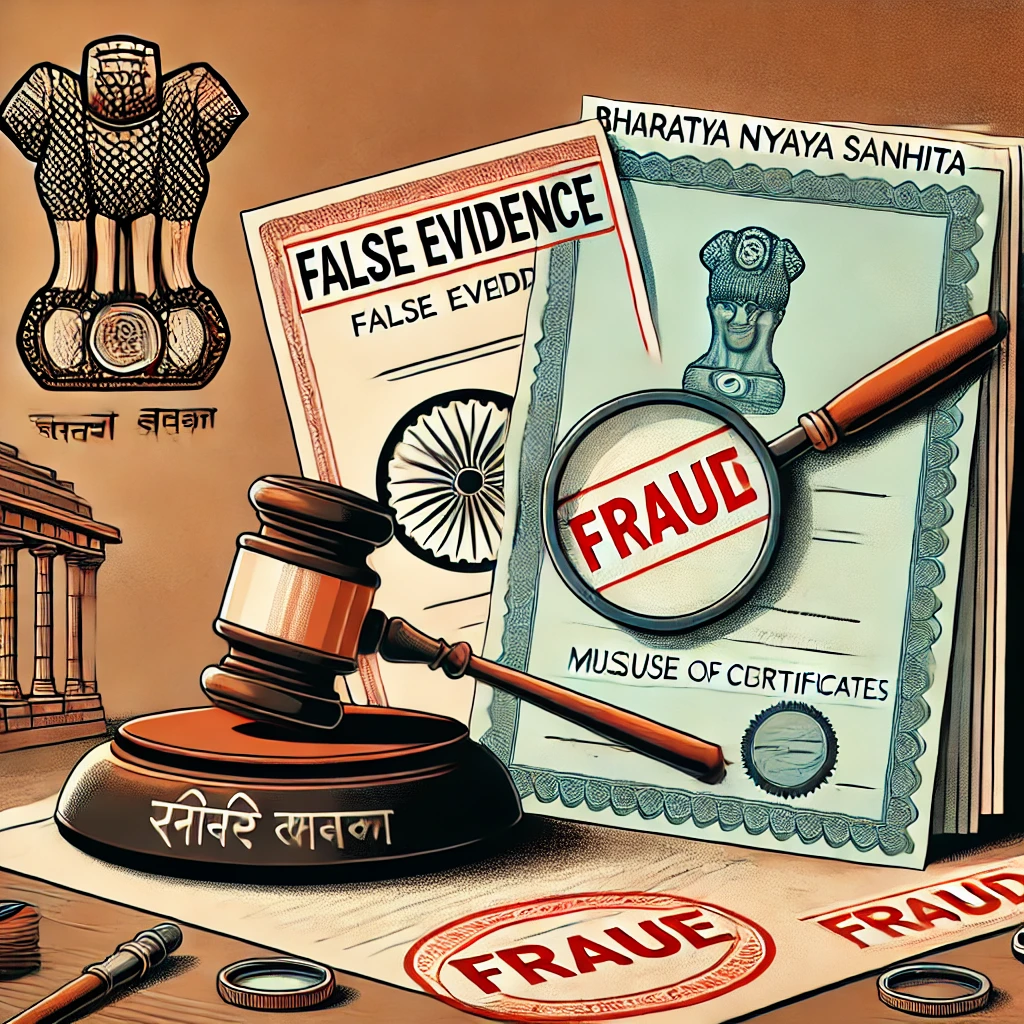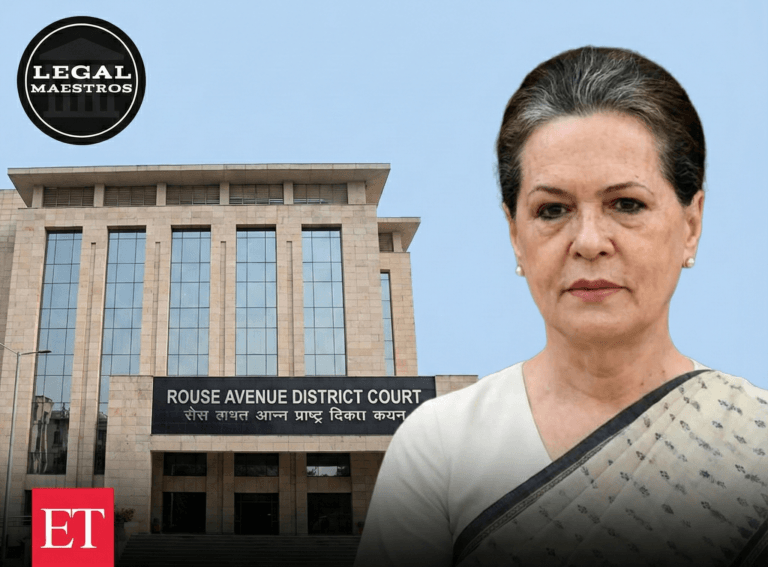
False Evidence and Misuse of Certificates: A Detailed Examination of Sections 233 to 236 of Bharatiya Nyaya Sanhita, 2023
The Bharatiya Nyaya Sanhita, 2023, that took effect on July 1st, 2024, has done away with the Indian Penal Code (IPC). Among many of its provisions, sections 233 to 236 deal with the employment of false evidence, abuse of certificates, and false statements. These provisions provide grave penalties for people who knowingly and corruptly make use of spurious evidence or certificates in courts of law and those who issue false statements in declarations. These provisions are outlined in this article in a very simple manner along with examples explaining how they would work in everyday life.
Section 233: Making Use of False Evidence as Genuine
Section 233 of the Bharatiya Nyaya Sanhita criminalizes the act of any person corruptly using or attempting to use false or forged evidence, with knowledge that it is false, as if it were real. According to the law, such an act will be dealt with in the same manner as the act of offering or forging false evidence itself.
For any queries or to publish an article or post or advertisement on our platform, do call at +91 6377460764 or email us at contact@legalmaestros.com.
For instance, take the case of a person in a civil matter presenting a forged document to the court as evidence of property ownership. If such an individual knows that the document is forged but uses it to corroborate their claim, they are liable under Section 233. The sentence would be the same as that for providing false evidence, and it could either be imprisonment or a fine, depending on the seriousness of the case.
Section 234: Issuing or Signing a False Certificate
Section 234 deals with the case where an individual issues or signs a certificate that is mandated by law, with the knowledge or belief that the certificate contains false information in a material part. This section is important since certificates tend to be important legal documents, and any false information in them can have serious repercussions.
For example, a government official may issue a birth certificate indicating an incorrect birth date for a child when he or she knows the date is incorrect. If this certificate is subsequently used within a courtroom, then the official can be held liable under Section 234 as if he or she had given false evidence.
Section 235: Using a False Certificate as True
Section 235 addresses a person who knowingly employs a false certificate as a true and genuine document. If a person uses such a certificate to their benefit in a legal or administrative case, they will be punished with the same punishment as giving false evidence.
For instance, one can obtain a spurious medical certificate for obtaining disability benefit. In the knowledge that there is some falsification of data within it but utilising the document in an effort to receive preferential treatment, then liability exists under Section 235.
Section 236: Furnishing False Information in a Declaration
Section 236 deals with false statements made in any statement on which a court, public servant, or other person legally entitled to require its production is required to act as evidence. When a person gives a false statement in such a statement, particularly regarding an important feature connected with the subject-matter, then he can be punished as if he gave false evidence.
Suppose a person gives a sworn affidavit during a court hearing, lying and claiming they saw something when they actually didn’t. Because the court accepts affidavits as evidence, the person would be liable under Section 236 and could receive the same punishment for perjury.
Punishments under Sections 233 to 236
All the above sections outlined (233, 234, 235, and 236) have similar punishments for the crimes outlined. The punishments can be in the form of imprisonment, fines, or both, depending on the seriousness of the crime. The punishment aims at deterring people from tampering with evidence or documents and upholding the sanctity of legal proceedings.
Conclusion
Subsections 233 to 236 of the Bharatiya Nyaya Sanhita, 2023, are important safeguards against the perversion of legal processes by false evidence, forged certificates, and false declarations. These provisions ensure that any person who tries to mislead the legal system by means of false facts, either in the form of evidence or government documents, is brought to book and punished as per law. By enacting stringent punishments, the law enforces the truth and fairness principle in judicial and administrative processes.
This holistic method of dealing with false evidence and abuse of legal documents strengthens the integrity of India’s legal system so that justice is founded on true and accurate information.







